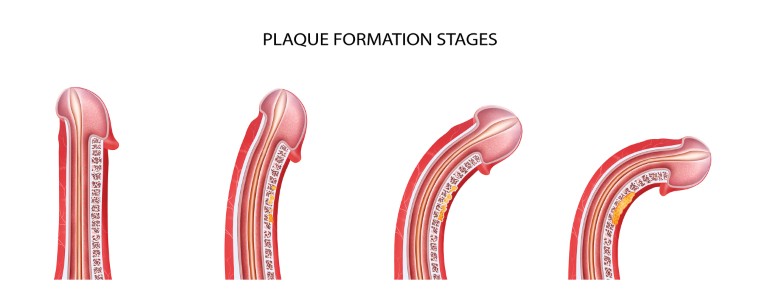- 12 April 2025
- Mr. Leon Almashan
Last updated on April 26, 2025
If you believe you may have developed Peyronie’s Disease (PD) and are experiencing a bend that causes discomfort during intimacy or affects your partner, we recommend visiting us for an assessment. Our specialists can evaluate the extent of any Peyronie’s plaque and discuss suitable treatment options.
PD affects around 9% of males, most commonly men in middle age. In addition to physical symptoms, it can have a psychological impact, affecting confidence, mental health, and overall quality of life. Peyronie’s Disease typically results from an abnormal healing response in the body.
Table of Contents
TogglePeyronie’s Plaque Formation and its Impact on the Penis
Peyronie’s Disease often develops after an injury that causes internal bleeding in the penile tissue. This can result from vigorous physical activity, sports injuries, or other forms of trauma. As the injury heals, scar tissue may form, leading to the development of plaque. Over time, these plaques can cause changes in the shape of the erect penis, leading to discomfort and curvature during arousal.

Anatomy of the Penis
- The Urethra: A hollow tube that carries urine and semen
- Two spongy structures called the corpora cavernosa fill with blood during an erection, providing rigidity.
These three tubes are enclosed in a tough, fibrous sheath known as the tunica albuginea. When plaque develops within this sheath, it reduces flexibility during the erection process, leading to an abnormal curvature.
This reduced flexibility is due to hard, fibrous lumps (plaques) that form within the tunica albuginea. Over time, these plaques can grow and lead to deformities in the erect penis, as scar tissue does not stretch like normal tissue.
In about 70% of cases, plaque forms on the top (dorsal) side of the penis, although in some instances, it may encircle the entire shaft. In more severe cases, plaques can calcify, becoming very hard, almost bone-like, which may cause discomfort during intimacy for both partners. Over time, the curvature caused by Peyronie’s plaques can become more pronounced.
Clinical Research on Peyronie’s Plaque Formation
Numerous studies have explored the causes of plaque formation in Peyronie’s Disease. Research indicates that the most common trigger is microtrauma to the tunica albuginea, often resulting from sexual activity or injuries to the genital area, as previously mentioned.
One study published in the Journal of Sexual Medicine emonstrated that repetitive microtrauma from sexual activity is a significant risk factor for Peyronie’s Disease (PD). The study found that men engaging in more frequent and intense sexual activity had a higher likelihood of developing PD and experiencing more severe symptoms due to plaque formation. These findings highlight the importance of recognizing certain sexual habits as potential contributors to PD development.
Treatment Options and Clinical Approaches
Currently, there is no universally agreed-upon standard treatment for Peyronie’s Disease. In some cases, symptoms of PD may improve over time without intervention.
However, when symptoms persist or worsen, various treatment options are available depending on the severity of the condition. To learn more about Peyronie’s Disease treatment options, please follow the link provided.
Shockwave Therapy for Peyronie’s Plaque
The development of Shockwave Therapy, particularly Focused Shockwave Therapy (FSWT), has transformed treatment options for Peyronie’s plaque.
This non-invasive treatment uses focused shockwaves to help break down the plaque that forms in the affected area. Additionally, our unique combination of therapies also addresses Erectile Dysfunction, a common comorbidity with Peyronie’s Disease.

About the Author
Mr. Leon Almashan
Mr. Almashan is a recognised specialist in advanced, non-surgical treatments for men’s health conditions, including Erectile Dysfunction and Peyronie’s Disease.
A graduate of St. George’s Medical School, he has developed innovative treatment protocols that have supported improved quality of life for 1000’s of patients worldwide.








